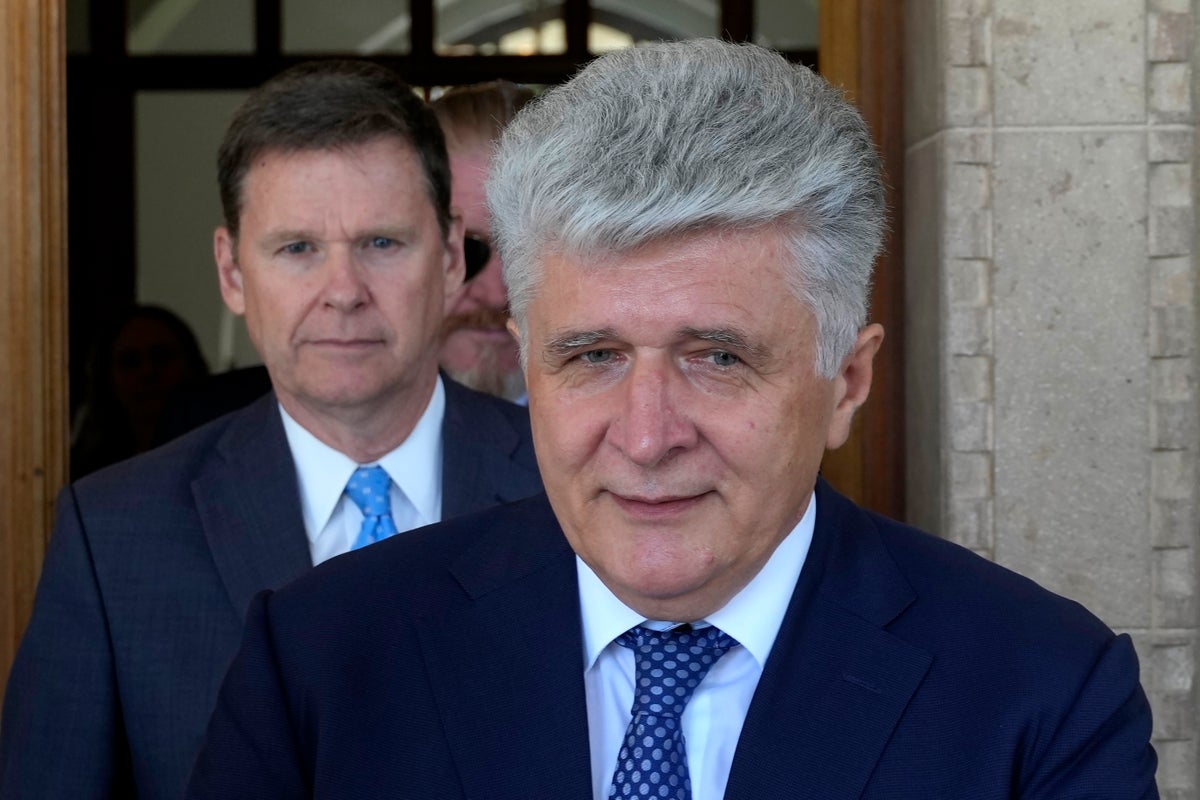
United Nations chief Antonio Guterres is paying very close attention to the situation on war-divided Cyprus and will use all means at his disposal to help reach an agreement to heal the Mediterranean island nation’s ethnic split, a senior U.N. official said Monday.
U.N. Assistant Secretary-General for Europe, Central Asia and the Americas Miroslav Jenča said he and Cyprus’ Greek Cypriot President Nikos Christodoulides discussed ways of resuming talks with breakaway Turkish Cypriots that have remained stalemated since 2017, when negotiations at a Swiss resort collapsed.
Jenča said U.N. Secretary-General Antonio Guterres would definitely "use all his good offices in order to help this process to find a solution to the Cyprus issue.”
Cyprus government spokesperson Constantinos Letymbiotis said Jenča conveyed Guterres’ “dedication to efforts for a resumption of negotiations” and that the world body continues to look for ways to get negotiations back on track.
Cyprus’ division returned to the fore earlier this month when angry Turkish Cypriots punched and kicked a group of U.N. peacekeepers who obstructed crews working on a road that would encroach on a U.N.-controlled buffer zone bisecting the small Mediterranean island.
The attack received international condemnation and prompted the U.N. Security Council to issue a statement underscoring “the need to avoid any further unilateral or escalatory actions by either party that could raise tensions on the island and harm prospects for a settlement.”
Turkey, in turn, accused the U.N. of bias over what it called “humanitarian” road construction, but which Greek Cypriots saw as a provocation and a violation of the U.N.’s mission on the island.
Cyprus was split in 1974 when Turkey invaded after a coup aimed at union with Greece. Only Turkey recognizes a Turkish Cypriot declaration of independence in the island’s northern third, where it maintains more than 35,000 troops.
The division has been a source of tensions since then, including over who holds sway in Cyprus’ offshore exclusive economic zone, more than 40% of which was claimed by Turkey following recent natural gas discoveries.
Christodoulides has been pushing to restart talks with breakaway Turkish Cypriot leader Ersin Tatar, including a proposal to get the European Union more invested in the U.N.-facilitated negotiations with the appointment of a senior official to help guide the process.
Cyprus joined the EU in 2004, but only the Greek Cypriot south where the internationally recognized government is seated enjoys full benefits.
Tatar said talks could begin once Greek Cypriots recognize the “sovereign equality” of the minority Turkish Cypriots. Greek Cypriots see that as an unfair power grab that would upend an agreed-upon framework for a deal foreseeing a federated Cyprus composed of Greek Cypriot and Turkish Cypriot zones.







